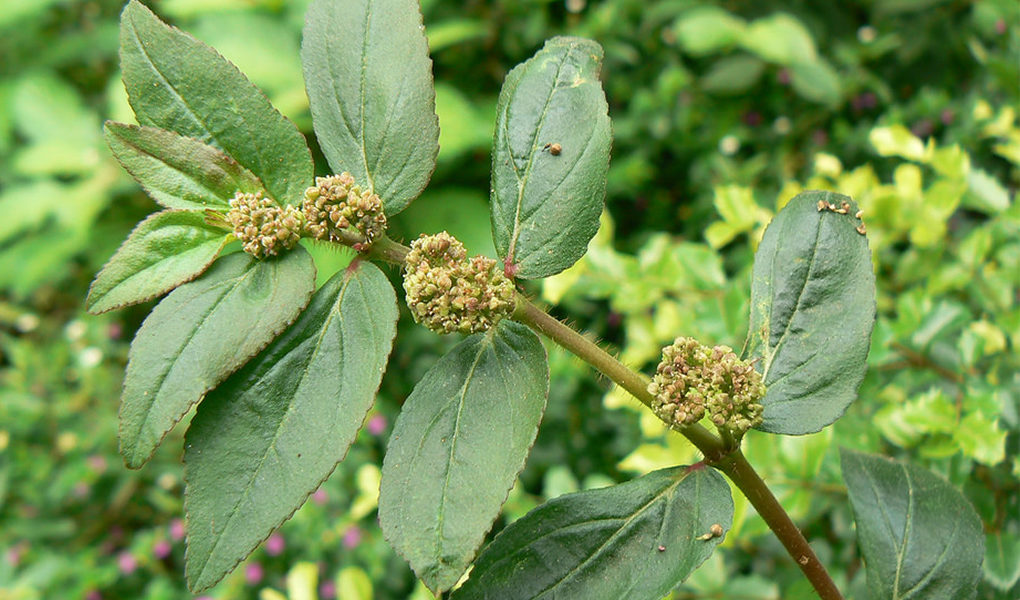In the wake of the fairly recent Dengvaxia vaccine fiasco, wherein more than 800,000 Philippine school children were supposed to receive protection from the dreaded dengue disease, Filipinos are still looking for medicinal solutions against dengue, a disease which until now does not have a cure.

Fortunately, medical scientists and researchers are looking far and wide for medicinal plants to cure or alleviate the dangerous effects of dengue. Here are a few we’ve found so far.
According to a review published in the African Journal of Traditional, Complementary and Alternative Medicines, a research team realized that many extracts and compounds from medicinal plants have “antiviral properties” which may not only alleviate dengue but present a less toxic and inexpensive cure for it.
From their studies, the African researchers discovered that methanolic extracts from the leaves of the Vernonia cinereaplant possess high inhibitory properties that fend off the infection. Likewise, the ethanol extracts taken from the stem of Tridax procumbers, more popularly known as “coatbuttons” or “tridax daisy”, have inhibitory properties as well.
Two more methanol extracts obtained from two plants – the Andrographis paniculata and Momordica charantia or bitter melon (ampalaya in the Tagalog language) – were discovered to fend off the dengue virus infection. Finally, essential oils extracted from the Lantana grisebachii plant alleviates the risk of dengue, the researchers said.
Other plants identified by the researchers that can be used against dengue are Andrographis paniculata [Hempedu Bumi (Malaysia)], Alternanthera philoxeroides (alligator weed), Carica papaya (papaya), and Cladosiphon okamuranus (brown seaweed). Among these, C. papaya leaf juice has been widely used as a remedy against dengue in many Asian countries. The researchers found extensive research has been conducted already to establish the “platelet activating, white blood cell increasing properties, and membrane stabilization potential of C. papaya leaf extracts”.
But the researchers recommend that more studies have to be conducted, since there is a variety of methods and design procedures used to determine the effectivity of the plants against dengue.
Philippine Tawa-tawa and Papaya plants against Dengue
A very recent study about Euphorbia hirta, the scientific name of the Tawa-Tawa plant, used in folkloric medicine in the Philippines against dengue and published in the Journal of Tropical Medicine, indicated the abundance of evidence conclusively demonstrating the potential of tawa-tawa against dengue.
The Sri Lankan researchers who conducted the study made a review of online literature about tawa-tawa’s anti-dengue properties. The study included 8 full papers to the review; out of those, two studies focused on ethnobotanical surveys, three on animal experiments, one on human trial, and two on in vitro (lab-conducted study) antiviral activities, and one was a computational study.
Their findings conclude that tawa-tawa possesses “significant antiviral and platelet increasing activities”. However, the researchers recommended conducting more controlled tests on tawa-tawa, as it has very promising potential as a cure against dengue.
Philippine folkloric medicine also cites the use of papaya leaf extract usually boiled as a tea and drank continuously as a cure against dengue. Many people attest to this cure, at least in the Philippines and other Asian countries.
Because of this practice, a research team from the University of Sto. Tomas Pharmacy Department did a study on lab mice treated with tawa-tawa. The results were an increase in platelet count, decreased blood clotting time, and reduced bleeding time.
Medicinal Plants that Ward off Dengue-carrying Mosquitoes
There are other medicinal plants and herbs that can repel dengue-carrying mosquitoes. These may include –
- Flowering plants like geraniums and pennyroyal are known to prevent the proliferation of mosquitoes. Also chrysanthemum, marigold, nasturtiums, and allium repel these dengue-carrying mosquitoes.
- Citronella is famously known for repelling mosquitoes in Asia. The plant is already being used in a lot of commercial insect repellants.
- Sage, Rosemary, and Basil’s extracted oils contain essential oils that repel or kill Anopheles and culex mosquitos. I would recommend all these herbs as they are natural repellants against them.
- Peppermint & mint – The strong aroma of mint and peppermint repel mosquitoes. Incorporating mind with vodka and apple cider vinegar also becomes very effective insect repellants.
Well, do you have more ideas for plant-based treatments against dengue? Share your tips in the comments below.
SOURCE: http://naturalcancermedicine.org/a-current-review-of-plant-based-treatments-for-dengue-with-anti-viral-effects/










